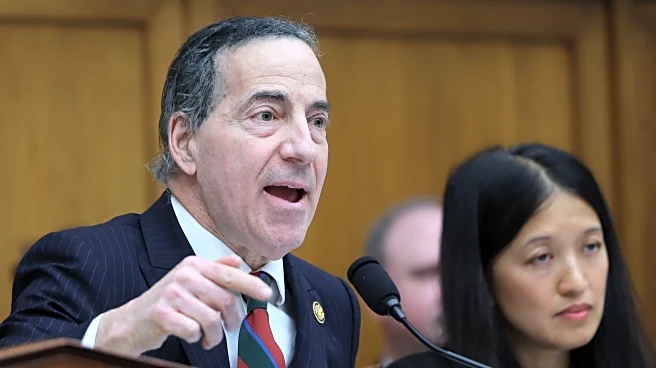Rapid Read • 8 min read
Federal Reserve Chair Jerome Powell has expressed concerns about the U.S. job market, indicating potential challenges ahead. Recent data shows a significant slowdown in hiring, with employers adding fewer jobs monthly compared to previous years. In 2024, the average monthly hiring was 168,000, but this has decreased to 35,000 over the past three months. Powell noted that this trend could lead to increased layoffs and rising unemployment. Additionally, there is a surge in long-term job seekers, with 1.8 million Americans searching for work for over 27 weeks, marking a 64% increase from three years ago. Young workers are also facing difficulties in securing their first jobs, partly due to economic slowdown and the adoption of artificial intelligence by employers.
AD
The slowdown in the job market is a critical issue as it affects economic stability and growth. A weaker labor market could lead to higher unemployment rates, impacting consumer spending and business investments. The Federal Reserve may consider cutting interest rates to stimulate the economy, making borrowing cheaper for consumers and encouraging businesses to invest and hire more workers. However, the reliance on artificial intelligence and reduced entry-level positions could pose long-term challenges for young workers entering the job market. This situation underscores the need for strategic policy interventions to support job creation and economic resilience.
The Federal Reserve is contemplating a potential interest rate cut at its upcoming meeting, which would be the first since December 2024. This move aims to energize the economy and bolster job growth. Meanwhile, job seekers are advised to remain active in their search, as the labor market may not improve significantly in the short term. Employers are signaling intentions to continue job cuts, which could exacerbate the current employment challenges. Stakeholders, including policymakers and business leaders, will need to address these issues to prevent further economic downturn.
The integration of artificial intelligence in the workforce raises ethical and cultural questions about the future of employment. As AI replaces traditional entry-level jobs, there is a need to rethink workforce development and education strategies to prepare young workers for new types of roles. This shift could lead to long-term changes in job market dynamics, requiring adaptation from both employers and employees.
AD
More Stories You Might Enjoy











